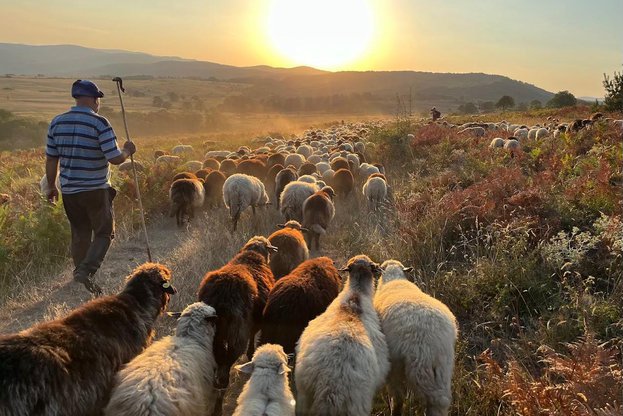
Bulgaria has joined the multinational nomination for accession to the element "Pasture Traditions", inscribed on the UNESCO List of Intangible Cultural Heritage.
The event was marked on March 28 with the official signing of the nomination by the Ambassador of Bulgaria to France and Permanent Representative to UNESCO Radka Balabanova. Bulgaria's inclusion highlights the richness of its local traditions related to pasture animal husbandry, as well as Bulgaria's commitment to the preservation and promotion of sustainable practices passed down through generations.
"Pasture Traditions" were included in the Representative List of the Intangible Cultural Heritage of UNESCO at the 18th session of the International Committee for the Safeguarding of the World Intangible Cultural Heritage in 2023. So far, the element included nine countries: Albania, Austria, Croatia, France, Greece, Italy, Luxembourg, Romania and Spain. So far, the element included nine countries: Albania, Austria, Croatia, France, Greece, Italy, Luxembourg, Romania and Spain. Now the joint candidacy for enlargement is from Bulgaria, Poland, Serbia, Slovakia, Turkey and Ukraine.
The joint candidacy for expansion is from: Bulgaria, Poland, Serbia, Slovakia, Turkey and Ukraine.
The seasonal movement of herds is the subject of centuries-old knowledge and the tradition is passed down in families. "Pasture Traditions" encompass the migration of herds of herbivorous animals (sheep, cows, goats, etc.) to remote pastures for seasonal grazing, which is most often practiced in mountainous areas, as well as the rituals, crafts and food products associated with traditional grazing. The mountains offer vast pastures where animals are kept for most of the year. Thanks to the herds and summer grazing, the land in the mountain pastures is free from shrubs and retains its high natural value. These pastures are rich in biodiversity and create a mosaic of exceptional landscapes, while at the same time being the source of a large number of dairy and meat products with protected designations of origin. In Bulgaria, mountain grazing has contributed to the formation of unique ecosystems, which still exist today in all the high mountains.
Pasture-based livestock farming also includes a set of festive gatherings and rituals accompanying the animals’ departure to summer pastures. These customs strengthen cultural identity, foster social inclusion, and maintain connections among communities and regions, while helping to mitigate rural depopulation.
Registration in UNESCO’s List of Intangible Cultural Heritage covers animal husbandry methods, pasture management, as well as related crafts and food products, recognized as contributions to humanity.
The Ministry of Agriculture and Food led Bulgaria’s accession process in partnership with the Ministry of Culture and the Ministry of Foreign Affairs.The Ministry of Agriculture and Food initiated and coordinated the accession procedure for Bulgaria in partnership with the Ministry of Culture and the Ministry of Foreign Affairs. The grazing traditions of Bulgarian livestock breeders are included in the national register of intangible cultural heritage “Living Human Treasures – Bulgaria”, maintained by the Ministry of Culture.